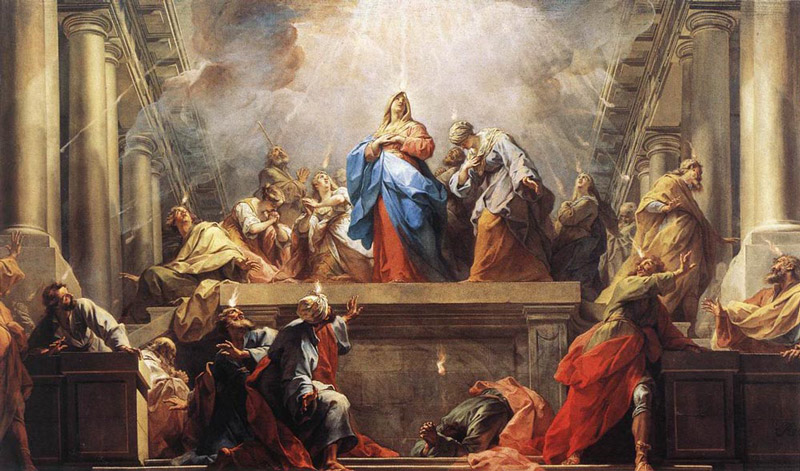
The culmination of the Season of Easter is Pentecost. For many of the first Jewish Christians, Pentecost was the fulfillment of some of their most ancient and important celebrations.
In Leviticus 23, God gave the Israelites a set of holy days to observe. Their most important was the Feast of Firstfruits during which they sacrificed barley. Fifty days later a sacrifice of wheat was to be offered. It was called the “Feast of Weeks,” or even “Pentecost” since it came 50 days after Firstfruits.
In light of Christ, first-fruit of the tomb, the Feast of Firstfruits was viewed as the forerunner to the Easter resurrection. Interestingly, although Saturday was and is the Sabbath for Jewish observers, the Feast of the Firstfruits and Pentecost were to be celebrated on the day afterward, Sunday, the day on which Christ rose.
Before, the Jewish Christians had celebrated a 50-day festival between feasts, so now 50 days after the resurrection, Pentecost would commemorate not the sacrifice of the wheat harvest, but the very Holy Spirit by which the wheat sacrifice is transformed into the Body and Blood of the Redeemer. “I am the bread of life,” “this” bread of wheat “is my body,” “I am the vine,” and “this” wine “is the chalice of my blood” rang in the ears of the first believers.
A celebration 50 days after the first human broke the power of the tomb made sense then and now. The Holy Spirit enabled the Apostles to become brave announcers that the feast of the wheat harvest paled in comparison to God becoming the very harvest consumed to help believers become like fruit growing out of the tomb.
Christ initially spoke of the Holy Spirit as the next teacher who would guide the Apostles into truth. The Holy Spirit is a gust of the breath of God for all of the baptized helping them to grow closer to divinity.
The arrival of the third Person of the Trinity into human hearts on Pentecost helps us see the value of being a person of God. Person-hood is ascribed to many living things now. An appeals court in the northeast recently ruled that a chimpanzee is not a legal person, while an article in the Washington Post advocated that we stop sending flowers for holidays since doing so is to “chop off the reproductive organ of a plant and send it.”
No matter how much we try to personify everything living, no collection of beavers will ever be able to radio another to say, “we’ve discovered a new way to build dams and it will revolutionize your work!” The gift of reason separates man from beast.
God has made us sharers in His divinity and the Liturgy celebrates this every day. The “fruit of the earth/vine and work of human hands” is handed back to us as the sustenance to follow the Lord into all truth. It’s an event at which we all must be.
